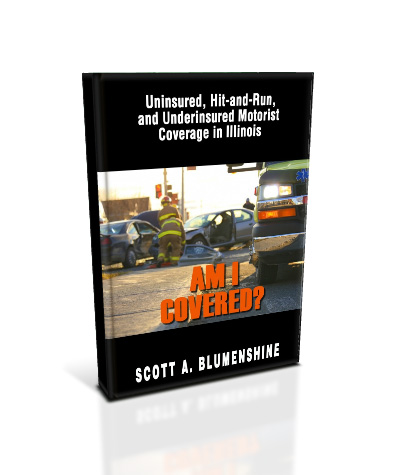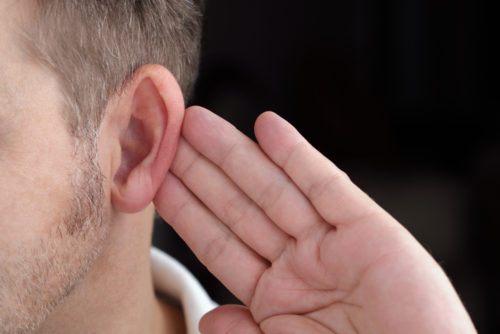Losing one's hearing is difficult. It can moderately to severely affect a person for their entire life. When loss of normal hearing is caused by the negligence or wrongdoing of another, you may be entitled to compensation. For workers that have suffered hearing loss on the job, they may have rights under the Workers’ Compensation Act. However, not all hearing impairment injuries are eligible for compensation.
A qualified caring hearing loss injury attorney can help determine if you can succeed in a claim against the negligent party or under the Workers’ Compensation Act.
Having poor hearing doesn’t just put you at a social disadvantage. It may put you in harm’s way by increasing your risk of being injured in a variety of situations, including at work. That's the news from a study in a March 2018 issue of JAMA Otolaryngology-Head & Neck Surgery, which examined how hearing ability played a role for the 6.6 million U.S. adults who experienced accidental injuries annually between 2007 and 2015.
Those who reported having “a little trouble” hearing were 60 percent more likely to have been injured, those with “moderate trouble” were 70 percent more likely, and those with “a lot of trouble” hearing were 90 percent more likely to have been injured, compared with those with normal hearing.
Types of Hearing Loss
The loss of hearing is either conductive or sensorineural. Conductive hearing loss refers to a problem with any part of the ear that cannot transmit sound waves to the eardrum. Sensorineural hearing loss occurs when there is damage to the central nerve, inner ear, or areas of the brain that process sound. Sensorineural hearing loss is often genetic and can range from mild loss of hearing to total deafness. Sometimes, a person suffers from both conductive and sensorineural hearing issues.
Noise induced hearing loss “NIHL” can be caused by a one-time exposure to an intense “impulse” sound, such as an explosion, or by continuous exposure to loud sounds over an extended period of time, such as noise generated in a woodworking shop.
While there are many instances that can result in hearing loss, it typically occurs from one of three situations:
Hearing Loss in the Workplace
losing the sense of hearing is a very common injury sustained in the workplace. Employees often work in environments surrounded by machinery and equipment that emit loud noises. Noise can cause hearing damage, particularly if the employer has not followed the regulations promulgated by the Occupational Safety and Health Administration (OSHA).
For example, OSHA states employees cannot be exposed to sound levels of 100 dBA for more than two hours. They also state employees cannot be exposed to sound levels of 90 dBA for more than eight hours a day. If an employer forced an employee to work in conditions that exposed them to those sound levels longer than the outlined time, it can result in issues such as tinnitus, or ringing in the ears.
According to the National Institute for Occupational Safety and Health (NIOSH), about 22 million people are exposed to potentially hazardous noise levels at work, and another nine million are exposed to toxic chemicals that may result in degraded hearing.
“We know that hearing loss is a huge problem in the United States, but we don't know how many people are filing claims on it,” said John Ratliff, of the American Industrial Hygiene Association's noise committee. He suspects a lot of employees with hearing impairments retire without filing a claim “because they don't know that they can.”
When a treating physician finds a connection between workplace noise and hearing impairment, injured employees will have rights under the Workers’ Compensation Act. In most cases, any worker hurt on the job must file a claim through workers’ compensation. These benefits will provide for many of the medical expenses and lost income an injured individual could receive through an injury claim. However, workers’ compensation does not provide for non-economic losses, such as pain and suffering.
Injury Claims for Hearing Impairment
There are times when the loss of hearing may result in a claim. A traumatic brain injury (TBI), a hole in the eardrum, and damage to the middle ear can cause hearing loss. For example, a defective product may explode and cause hearing impairment. In this case, the injured individual could file an injury claim against the manufacturer to claim compensation. If a negligent healthcare professional caused a patient to sustain a hearing loss, the injured patient could file a medical malpractice lawsuit.
To file an injury claim, a person must have sustained a hearing injury through an action they did not take willingly. Sustaining hearing loss after attending a concert, for example, is not likely cause for an injury claim.
Injured individuals must prove in an injury claim that the person who caused the injury had a duty to act in a reasonable manner to keep others around them safe. Those hurt must prove the other party breached that duty, and that they suffered hearing loss as a result. They must also show that hearing loss has caused them financial harm.
Through an injury claim, injured individuals can receive compensation for economic and non-economic losses. Economic losses are those that have an actual dollar value, such as medical bills and lost income. Non-economic losses are those that do not have an actual dollar amount, such as pain and suffering. Permanent disability is also sometimes awarded in cases involving hearing impairment. The amount of compensation awarded depends on the injured individual’s age and if the permanent damage is partial or total.
Contact Our Chicago Hearing Loss Lawyers
If you have suffered hearing loss on the job or as a result of someone else’s negligence, you may be entitled to compensation. At Blumenshine Law Group, our hearing loss lawyers can help. Call or text us today at (312) 766-1000 or email [email protected] to schedule your free consultation to learn more about how we can assist with your claim.
Need Help? Call Now: 312.766.1000 or




